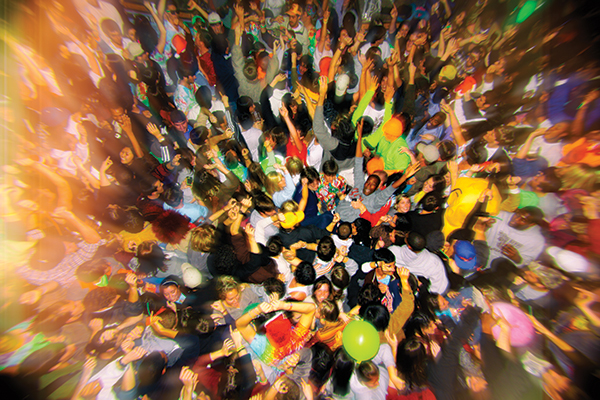Mufti cops join the party, albeit sober
Police officers spy on drunks in southland and otago bars
The initiative began in Queenstown and will run throughout the Southland and Otago districts in the coming year. The project is part of an effort to target alcohol-related harm in these regions. Senior Sergeant Allan Grindell, Otago Rural Prevention Manager, told Critic, “With the new Sale and Supply of Alcohol Act, new responsibilities are placed on the community as a whole to manage alcohol more safely.”
“Intoxication leads to alcohol-related harm in our communities and our aim is to reduce the impact of that harm by ensuring compliance with the new act,” says Grindell. He identified “assaults, family violence, wilful damage, and road crashes” as examples of the harm alcohol can cause. Grindell said that the plain-clothed officers would have “a particular focus on intoxication in bars but they would also note and observe activities surrounding host responsibility and security.”
A media release from NZ Police outlined the initiative, saying that if an incident of intoxication were observed by officers as “likely to amount to an offence or escalate into an incident of disorder or violence,” then an intervention team would visit the premises and take appropriate action. The team would generally consist of police officers, local council licensing inspectors and representatives of Public Health South.
Licensees will be provided with regular feedback about the behaviour occurring on the premises, as well as the way patrons and levels of intoxication were being managed. This includes positive feedback if the premises were doing a satisfactory job.
Grindell said, “The benefits of this new strategy are that we will be able to observe the behaviours of patrons over a longer period of time and see how a licensee manages this behaviour.” He said licensees and managers would not be negatively affected, so long as they “run their premises within the law.” Grindell assured Critic that the public would not be affected “unless, of course, they are intoxicated and attempting to gain entry or are on a licensed premise.” He said, “The student population will face no closer scrutiny than anyone else.”
In regards to whether the plain-clothed officers will be consuming alcohol in the premises they attend, Grindell told Critic “that is operational information which we do not intend to comment on.”
Critic spoke with Ian Lindsay, owner of Suburbia Eatery & Nightlife, who said he had “no issues” with the new initiative. “In liquor licensing, there are a lot of rules and regulations, so it sort of keeps people from slacking off and it keeps us on our toes,” said Lindsay. He believes “when policemen have uniforms on, that probably causes more of a problem. People can become intimidated. All people want to do is go out and socialise and have a good time. If you’ve got 10 police officers walking in the door wearing a uniform, people can’t really relax, even if they’re not doing anything wrong.”
Janice Turoa, owner of Starters Bar, told Critic “I’m in two minds about it.” She said, “I think it’s a waste of money, which is generally better spent on the streets.” However, she also said, “I welcome it, because we’re doing nothing wrong. They’re more than welcome to come into the bar and see that we actually have security on every night, as well as all bar staff who are always doing their job.”
The new laws include limits to trading hours, further limits on supplying alcohol to a person under the age of 18 and new on-the-spot fines for the misuse of IDs. As per the previous law, people will also not be served and should be removed from the premises if they are intoxicated. The new law, however, clearly defines “intoxication” as displaying any kind of change in appearance or behaviour, which suggests intoxication.








